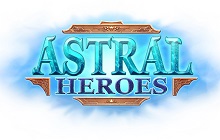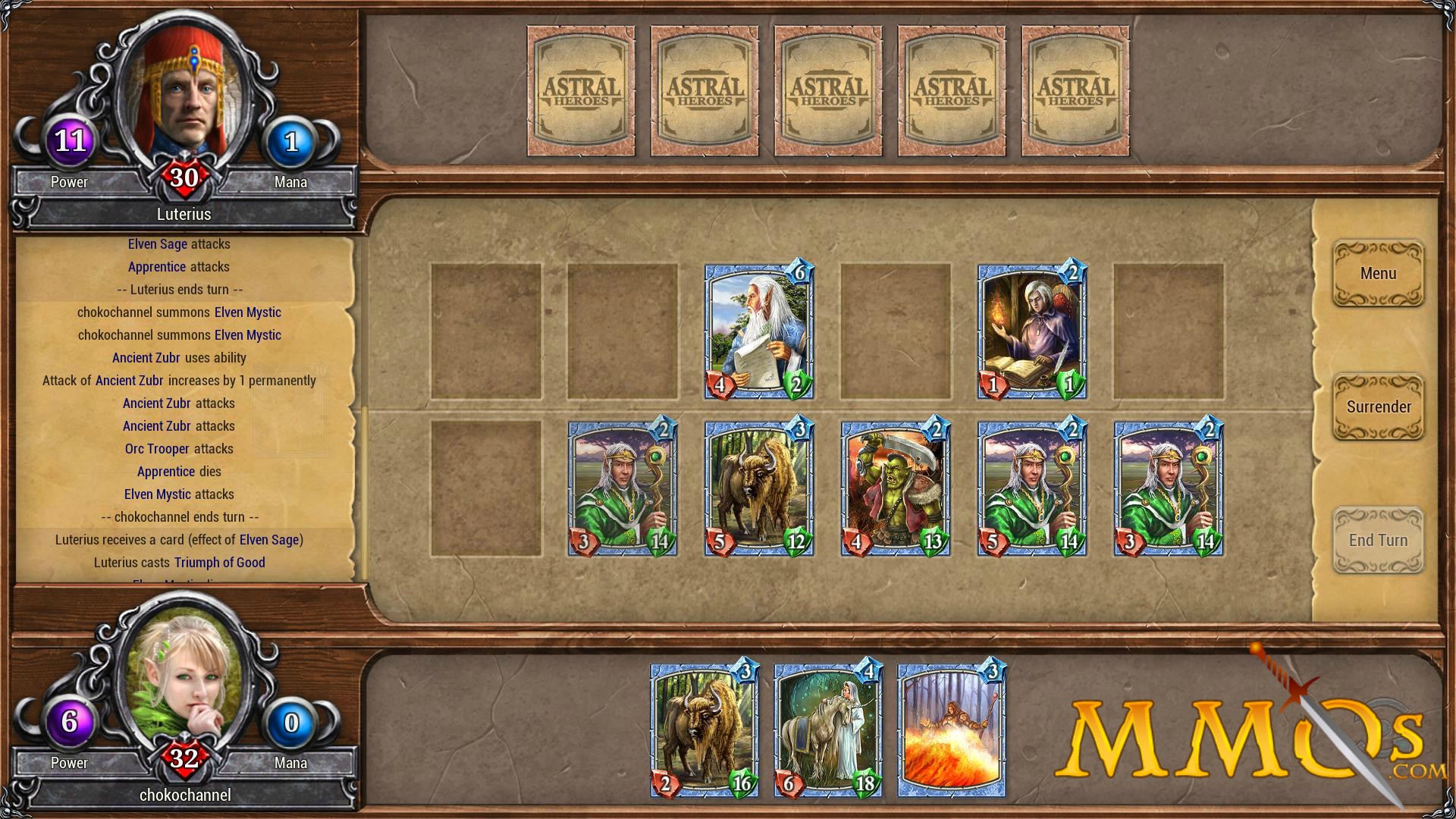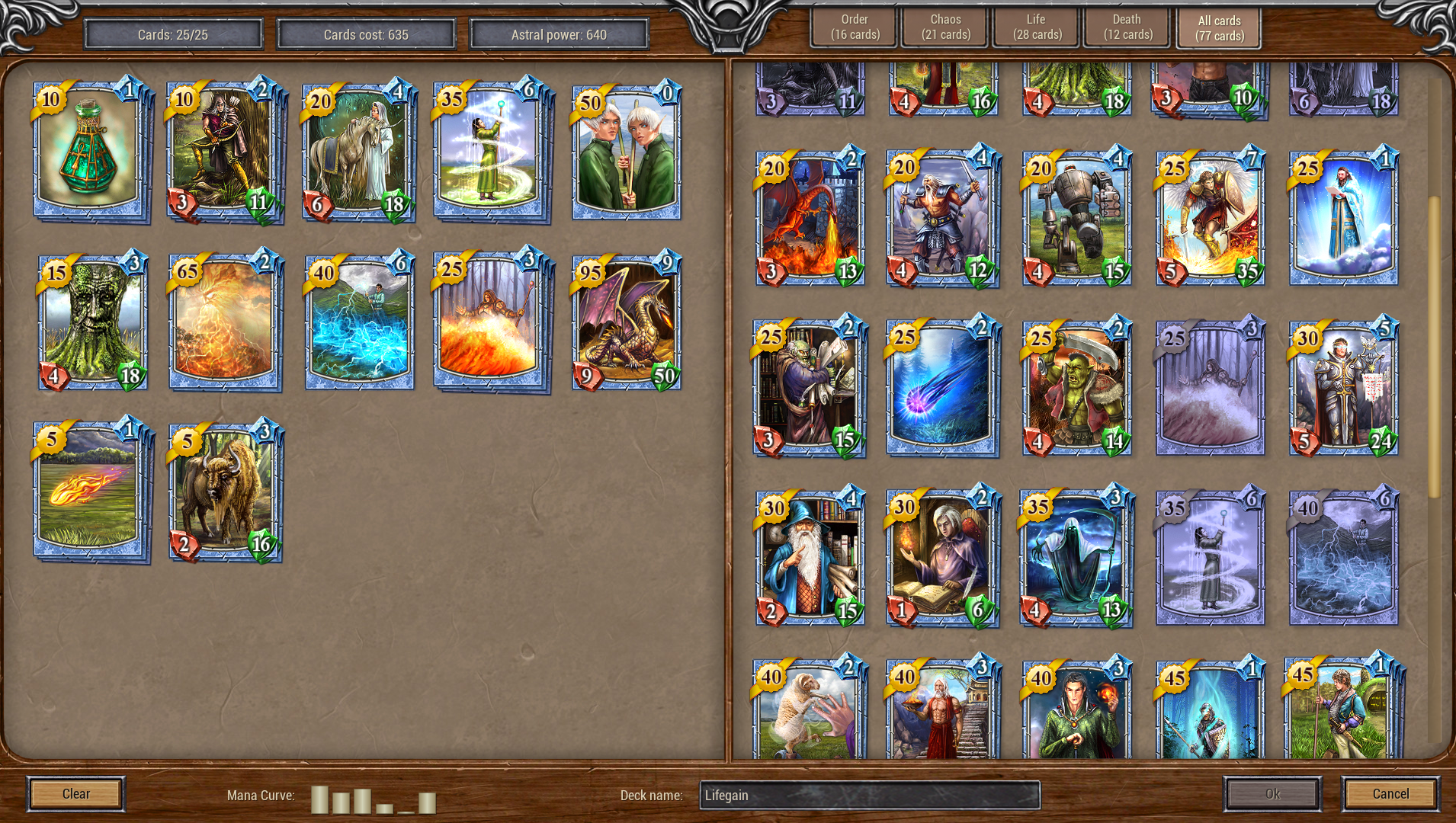Astral Heroes - first impressions
Written on
Spectromancer was a game I used to play many years ago to pass the time and enjoy some good strategy. It had cool mechanics and really good AI. Now, there’s a spiritual successor (or actual successor?) called Astral Heroes. It promises “thoroughly polished game balance, no useless cards”, which is very interesting for me.
Now, what is it? It’s a collectible card game, not unlike Hearthstone, with a more complex battlefield, where creatures can have activated abilities (similar to Magic: the Gathering), but they only do direct combat with the creature placed opposite them. Like Hearthstone, players can’t interact with their opponent when it’s not their turn.
The average game seems to last around 10 minutes, which makes it a good candidate for a time-filler during breaks. The interface is polished and pretty, but has room for many improvements, particularly in the area of chat. I would like for chat to sit somewhere on the bottom or side of the screen, and not get thrown in with the game log. But I’m sure that’s somewhere on the to-do log.
On the balance of the game. All cards do indeed seem to have value, as well as a lot of synergy with other cards. Those with a background in M:tG would scoff at a card that just says “Gain 10 life”. I did too. But that card is a real engine when paired with a control deck whose only goal is to survive until it can cast expensive spells; or cards that benefit from you playing any spells.
Just like Hearthstone, the digital platform benefits the game’s mechanics, as some cards can become other cards while on the battlefield, damage is persistent and the mana system is a tweaked version of the Hearthstone one, where you gain 1 mana capacity / turn (no upper limit that I could get to), with creatures and spells that can interact with your total mana capacity or your opponent’s. There is exhaustion, where, after 20 turns, each player takes increasingly more damage at the beginning of their turn.
The main differentiator is in deck construction. For the custom decks mode, what M:tG players would consider Constructed, each card has an “Astral Power” value. Your deck has to have 25 cards minimum, but X (currently 640 for me) Astral Power worth of cards maximum. So, for every Dragon (95 Astral Power) I have in my deck, I need at least 3 cards that are valued at 5 Astral Power. This does create an interesting meta-game, where, given proper match-making, the power level of your opponent’s deck can’t be much higher than yours and it all becomes a game of skill (and a bit of luck in drawing the best cards for the situation). The random element can be controlled even further by the ability to replace a card from your hand, every turn, for free, with a random card from your deck. Cycling, essentially.
A second game mode available, random deck, is just that. It gives you and your opponent a completely random deck and you duke it out. It’s fun and helps highlight many of the game’s card synergies. There’s also drafting available, but I have not tried it yet.
But, after 26 games of custom deck (19 wins, 7 losses) and 14 games of random deck (12 wins, 2 losses), I have a general idea about the available decks and playstyles available at my level of play. I believe there is a dominant strategy, a control deck that seeks to keep the board clear with board wipes, play the one creature immune to the board wipe damage (Unicorn), keep gaining life and drawing cards, stalling the game, eventually playing a Dragon and casting one or two spells, to completely push the opponent out of the game. What Dragon does: whenever you play a spell, it reduces your opponent’s spell power (mana capacity) by 2. Assuming equivalent ramp on both players’ sides, playing either Dragon + Clone (0 mana spell) or waiting for Dragon + any 1 mana spell, results in you likely winning that game. Playing more than one spell with Dragon out is almost certainly a victory. I had the pleasure, in random deck mode, to have 2 dragons on the battlefield. It was not fun seeing how my opponent was brought down to 0 spell power within a turn.
Of course, I might be horribly wrong, as this is purely data from facing that deck several times (alongside others), then adopting it myself to good results. I’m sure my methods of automated balance (more info on that soon!) could gather better data from all that. (Shameless research plug done)
On the point of AI - it plays really well. It makes use of creature abilities well, it keeps the board as advantageous to itself as possible, it identifies threats properly. It’s not the most creative out there, but it’s hard to make creative AI. The computer opponents are not pushovers, which is great.
All in all, I will likely play this a bit more. It’s enjoyable. Although I would definitely like a more artistic world. Playing an “Elven Archer” against a “Vampire Initiate” is extremely generic. More personality would take the game a long long way!
http://astralheroes.com/en/home - Add “NightHawk” if you want to yell in my general direction!



